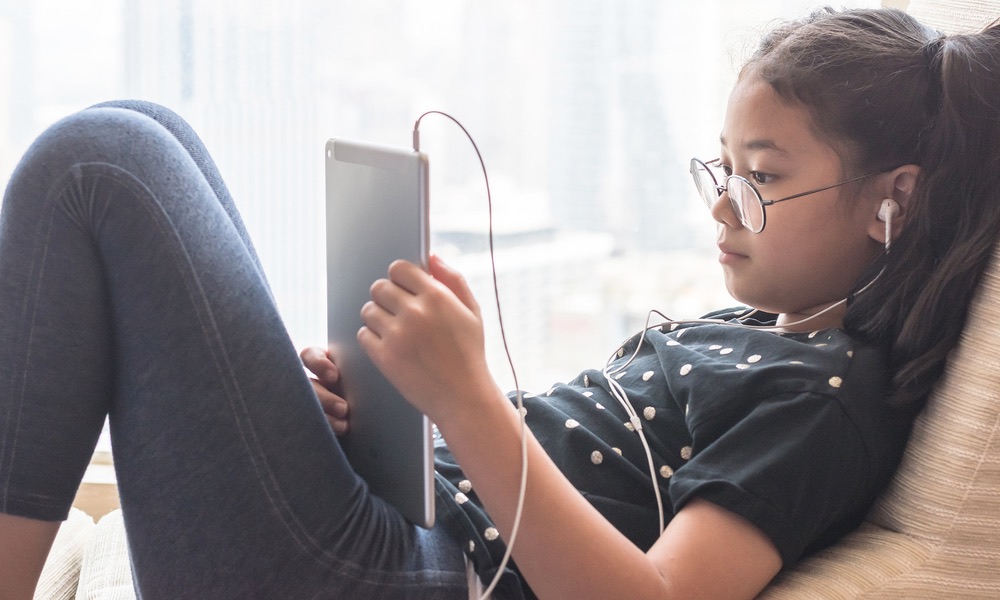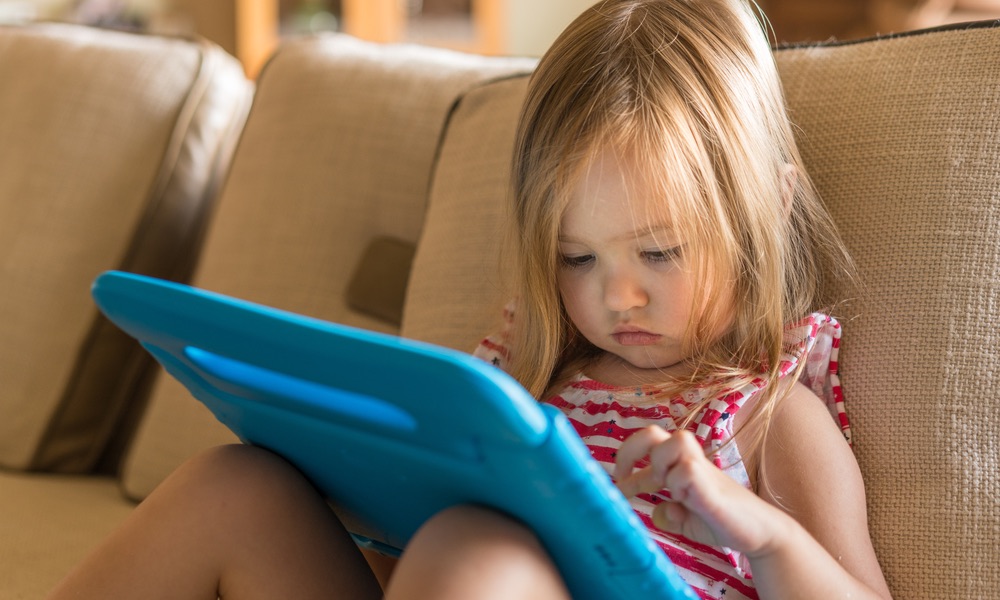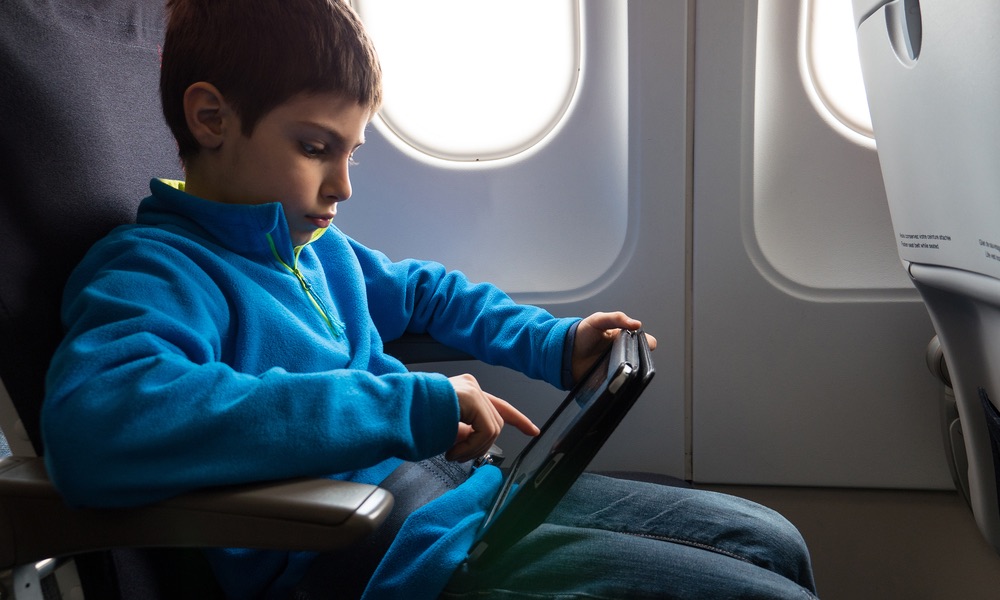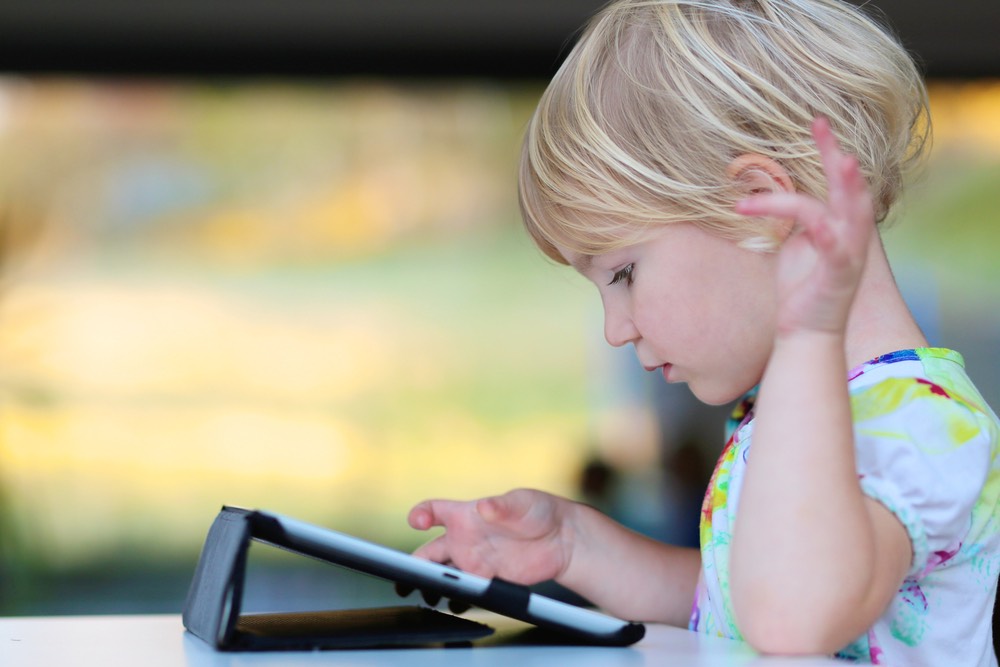FAQ: Worried About Your Kids Using an iPad? Here’s What the Research Says
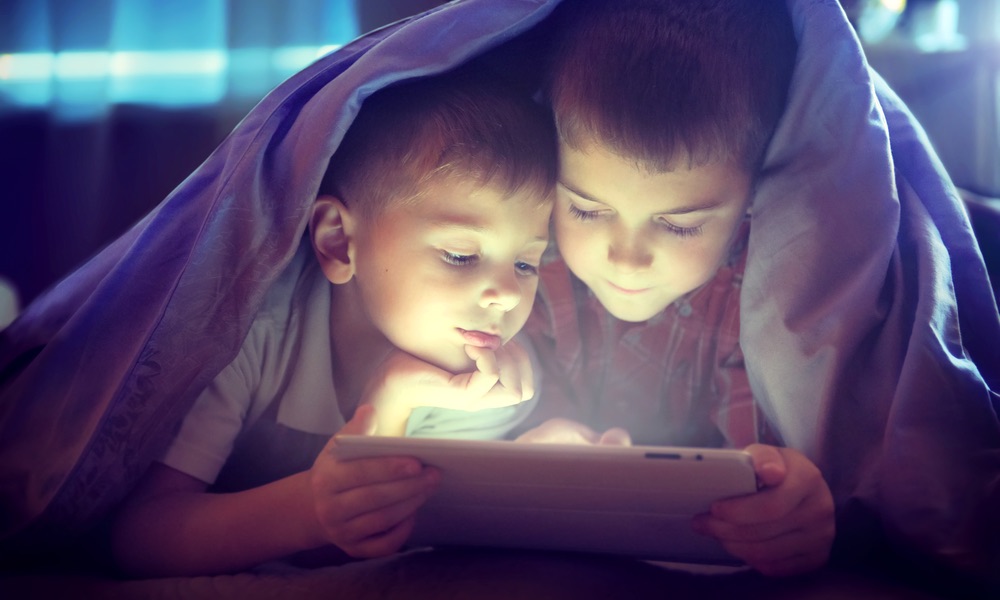 Credit: Subbotina Anna / Shutterstock
Credit: Subbotina Anna / Shutterstock
Toggle Dark Mode
If you’re a parent of a younger child, screen time is definitely on your mind, especially when it comes to that incredibly useful iPad.
On the one hand, you don’t want too much use of the iPad to interfere with your kid’s health, growth, or learning process. On the other hand, there are times when you’ll do anything for 30 minutes of sweet sanity, and if that means plopping an iPad in your child’s lap, then so be it.
But what is the research really saying about kids playing around with devices like the iPad?
Is there an iPad cut-off time or rules you should follow for the health of your kids? Is it just too early to let them use an iPad yet? We took a look at the latest studies, and here’s what we found (and yes, some of the results may surprise you).
iPads May Be More Beneficial Than Reading Books
Yes, that’s right! When kids first started using iPads and other shiny screens, there wasn’t really any data about what exactly that meant – just general anxiety that a screen was worse than, well, anything that’s “not a screen.” Now, a study recently published in the journal Developmental Psychology had enough data from years of tablets existing to study their effects on kids – and it found that iPad interaction can actually be better than reading a real-world book.
That means kids reading on an iPad tested better for memory and comprehension compared to reading text on a page. The answer, which shouldn’t surprise any parents out there, is all about interactivity. Absorbing information on an iPad involves animations, buttons, colors, and graphics. It appeals to more senses while giving children more to do. As a result, kids are more engaged and remember more about what they read. Think of it like an endless picture book that can become anything you want it to be. Not a bad perspective, is it?
Parents Are Worrying Too Much
There’s another study from the University College of London and the Royal College of Paediatrics and Child Health across the pond on the parents of children under 18, and how screen use affects these kids. The study came with two important takeaways.
There’s no sign of causation with any particular problem. Yes, issues like obesity and depression are increasing. Yes, screen time is increasing. There’s no demonstrable relationship between the two, no matter what the scary headlines say. Parents (and politicians) shouldn’t try to link the two things together unless future evidence shows a real connection.
Parents themselves are worrying too much about screen time. Mobile devices can be a great way to “explore the world” as the study co-author put it, and communicate with people you wouldn’t be able to see otherwise. Parents, on the other hand, are worrying a lot about children using devices – but they can’t narrow down why, exactly, and there’s no reasonable cause for that worry anyway. The study suggests that societal pressures are put on parents to make them feel like this kind of screen time is somehow bad as a way to shame, scapegoat, or control them. So parents, relax! It’s fine. Don’t fall for the worry trap. Set some basic rules, and don’t stress out.
Giving Your Kid Their Own Tablet Is Common, Too
A PCMag study surveyed 1,000 parents to get an idea of when kids are getting their own devices. It turns out that parents are a lot more lenient about getting kids a tablet device like an iPad rather than a smartphone. 27% say they would give their kids a tablet between the ages of 9 and 11, followed closely by 26% who thought that ages 6 to 8 were fine for a tablet. Just make sure the right parental controls are on the device first.
Worried About Your Youngest Kids? Here’s What Experts Say
What about toddlers and tikes? Can you safely put an iPad in their lap, too? The World Health Organization has updated its recommendations on this. For a kid who’s just a couple of years old, keep direct screen time down to around one hour a day. Active play and discovery are very important at this age, and screens can inhibit this.
For kids 3 to 4 years old, there’s a little more leniency, but the WHO and the American Academy of Pediatrics still advise to keep use of devices like iPads down to an hour or so a day. They also remind parents that sleep needs to be the priority, followed by physical exercise. Don’t let screen time interfere with that.
Screen Time at Mealtime Is a Bad Idea
Put away the iPad when you’re eating with your kids. Mealtime interaction with family is associated with all kinds of healthy development indicators – it’s not usually the food itself, but the quality time spent with loved ones. Make sure the screens are away during times like these, not only for family dinner but for most family playtimes or interaction.

